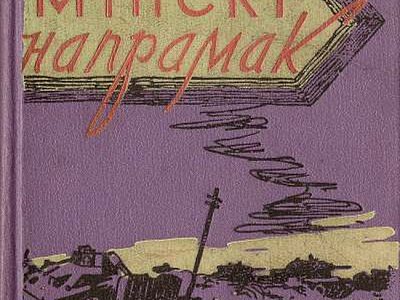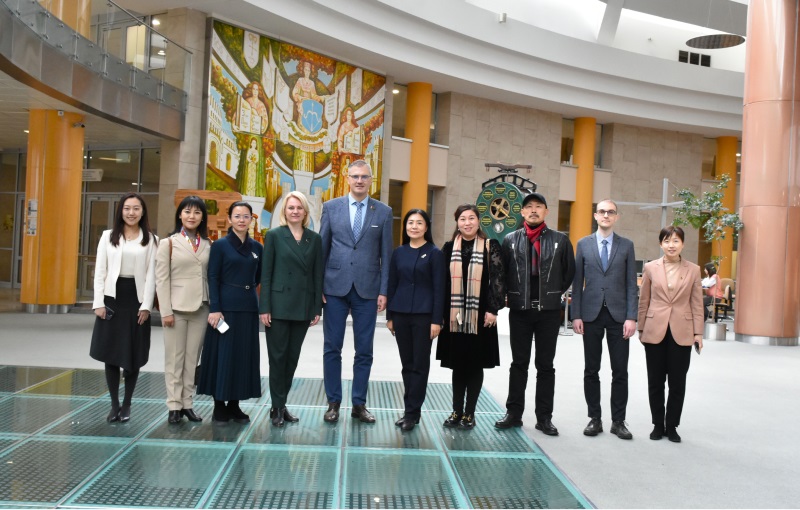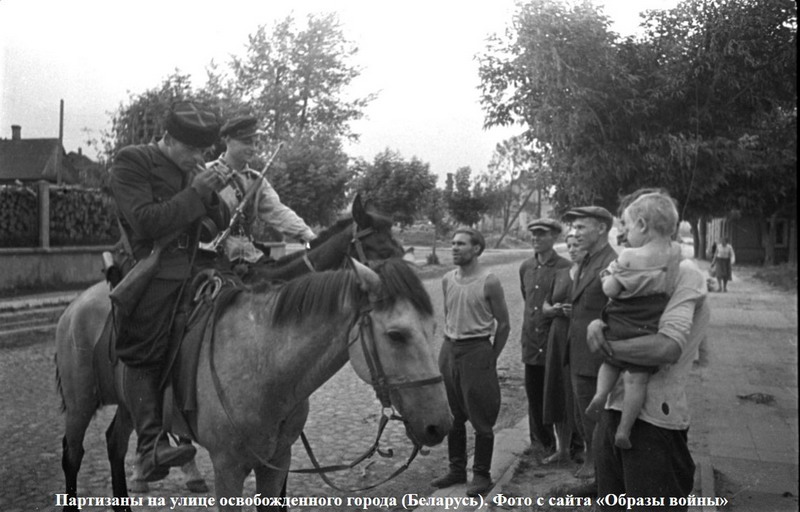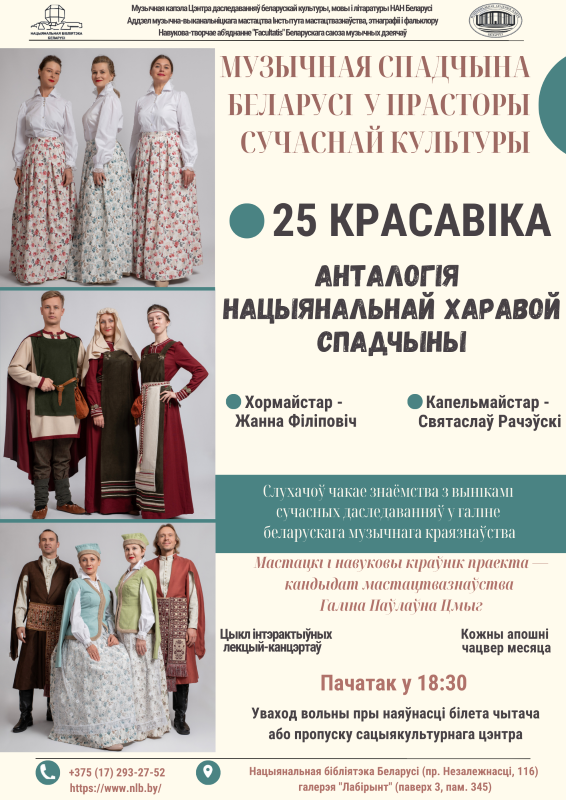February 8 marks the 100th anniversary of Ivan Melezh, one of the most recognized Belarusian writers, publicist and public figure, winner of many literary prizes, a participant of the Great Patriotic War.
Ivan Melezh was born into a farmer's family in the remote place of the Belarusian Paliessie – the village of Glinishche of the Khojniki district in the Homiel region. From there, from the depths of the forests, the writer’s characters entered their literary immortality: it was there that he studied their personalities, made generalizations of human traits and behaviour.
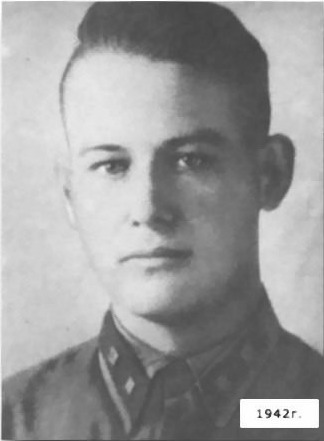 During his school years, Ivan enthusiastically drew pictures, dreaming of becoming an artist. He read a lot of Belarusian literature and world classics, tried to write poetry.
During his school years, Ivan enthusiastically drew pictures, dreaming of becoming an artist. He read a lot of Belarusian literature and world classics, tried to write poetry.
After graduating from school in 1938, the young man worked in the Khojniki district committee of the Komsomol. In 1939, he entered the Moscow Institute of History, Philosophy and Literature named after M. Chernyshevsky and was immediately drafted into the army. He began serving in Donbass, then in the Carpathians. In 1940, he participated in the liberation of Northern Bukovina and Bessarabia.
From the first days of World War II, I. Melezh was at the front line. In June 1942, he was seriously wounded in battle near Rostov. After treatment, he was sent to the rear. He lived in Buguruslan (Orenburg region, Russia), where he taught military training and studied by correspondence at the literary faculty of the Moldovan Teachers' Institute. In 1943–1944, he worked at the Belarusian State University (BSU), which at that time was located at the Moscow station Skhodnya. In 1944, I. Melezh came to Minsk. He graduated from the Faculty of Philology of BSU a year later, and then continued his education in postgraduate school.
Ivan Melezh began his literary activities with poems published in the 1930s in the national and regional newspapers. He considered his front-line diary to be his first prose work, in which he described the fierce battles at the Zbruch River near Uman, on the Dniepr. In 1943, his story "The Last Operation" was published in the newspaper "Buguruslan Pravda", and in 1944, a story "A Meeting at the Hospital" in Belarusian appeared on the pages of the newspaper "Zviazda".
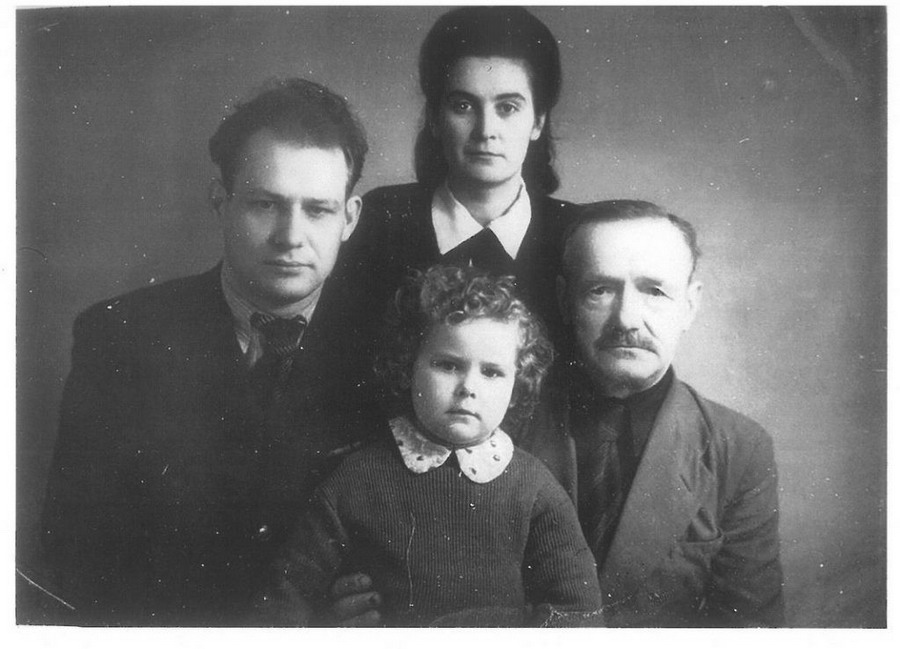
On the photo: I. Melezh with his wife Lidija, daughter Liudmila and his father. 1948
It was Kuzma Chorny who first noted the young author's talent and blessed him for the literary activities. He highly praised the early pieced by the novice writer, especially a story "In the Blizzard", which gave the title to his first collection, published in 1946. The book includes stories about the events of the war.
In the late 1940s and early 1950s, Melezh was writing a great work – a novel "The Minsk Line of Advance", which became one of the first panoramic canvases dedicated to the liberation of Belarus from the Nazi invaders in the summer of 1944 during Bagration Operation. In the 1960s and 1970s, the novel was reworked: the coverage of events became more multifaceted and large-scale, rich in authentic characters, which showed the heroism and tragedy of the war.
Later, Ivan Melezh published a collections of prose "Close and Far," "Rains in the Mountains," "What Kind of Man he is," tried his hand and in the drama.
Melezh's talent was particularly disclosed in the trilogy "Paliessie Chronicle". This story of his dear native land was his main work. The cycle consists of the novels "People of the Marsh", "The Storm's Breath", "Snowstorm in December" (unfinished). In the trilogy, Ivan Melezh unveiled the fate of the peasantry in the turning point of history, displayed the events of the 1920s–1930s in Paliessie. He created a people's book, a national epic, in which the author's artistic and civic courage in understanding the complex processes of collectivization, love for his people, humanistic passion, epic scope and breadth of historical thinking, mastery of artistic detail were revealed with particular force. Images of Hanna, Vasil, Apejka and other characters became the embodiment of the national character, universal images and types. The first two parts of the "Paliessie Chronicle" were awarded the highest Soviet literary award, the Lenin Prize.
Throughout his literary career, I. Melezh took a thoughtful, proven aesthetic position, which is set out in the book "Life Cares" (1975) – a collection of articles, essays and interviews with the writer.
In addition to his literary activities, Ivan Melezh was actively engaged in public life: he was chairperson of the board of the Belarusian branch of the Belarus-France partnership, chairperson of the Belarusian Peace Protection Committee, and deputy of the Supreme Council of the BSSR (1967–1976). For many years, he worked as secretary and then deputy chairperson of the administration of the National Writers' Union.
Unfortunately, Ivan Melezh passed away very early, in 1976 at the age 55.
The works of prose have been translated into many languages. The honourable title of the People's Writer of BSSR was awarded to him in 1972 for achievements in the development of Belarusian literature. He was the winner of the Kolas Literary Prize (1962), the Lenin Prize (1972), the Kolas BSSR State Prize (1976), he was awarded several orders and medals. Two documentaries "Ivan Melezh" (1978, 1990) are dedicated to the writer's life and work.
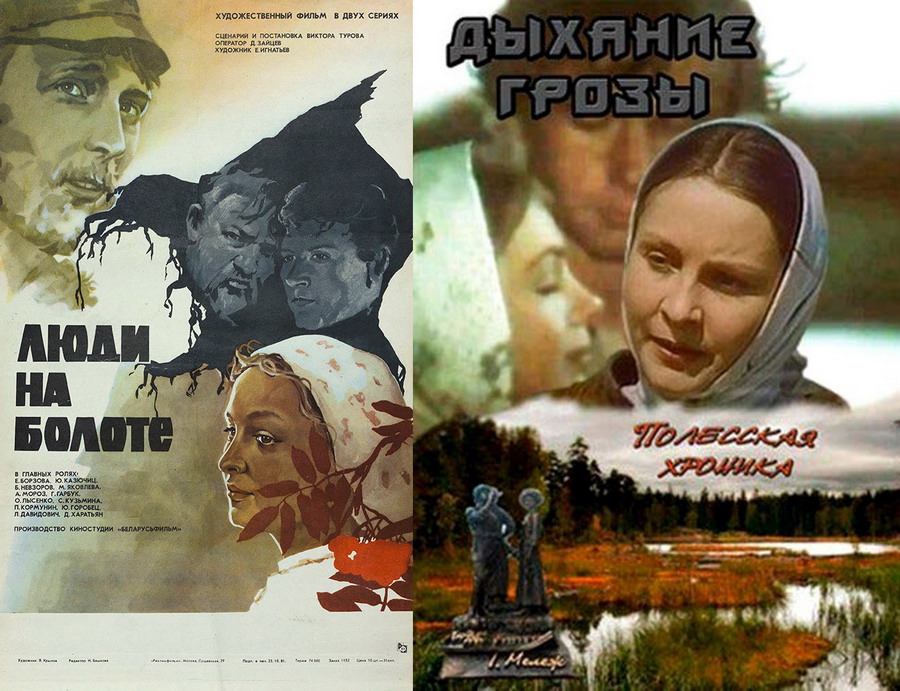
In 1980, The BSSR Writers' Union established I. Melezh Literary Prize. Streets in Minsk, Homiel, Kobryn, Khojniki, Lelchytsy are named after him. There is a memorial plaque on Janka Kupala St. 7 in Minsk, where the writer lived. The name of Ivan Melezh was adopted by Belarusian-Slavic Gymnasium and the city library in Homiel, as well as by drama theatre in Mazyr. In 1983, a memorial house-museum was erected in the village of Glinishche. A sculptural composition based on the novel "People of the Marsh" was opened in the Khojniki city park in 2010 Valery Kandratsenka, the author of the multi-figure composition in bronze and granite, immortalized the characters of the novel.
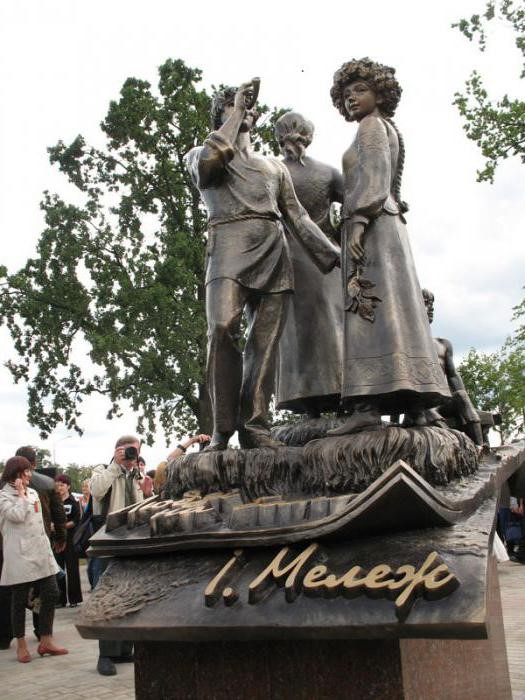
A sculptural composition based on the novel "People of the Marsh" Sculptor V. Kandratsenka.
The 100th anniversary of I. Melezh is a wonderful occasion to read the piecves by the classic of Belarusian literature, to learn more about his life and work. He excellently knew the people and the language of his land, made keen observations, was very self critical, loves literary work, which became his main vocation and meaning of life.
You can do this by visiting the E-catalogue of the National Library of Belarus and the online encyclopaedia "Belarus in Persons and Events." On the eve of the anniversaries of I. Melezh and I. Shamiakin, a literary and artistic exhibition "For a Human to Live Like a Human... " is open in the Library.
Bibliology Research Department



